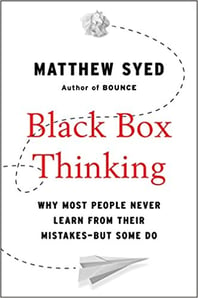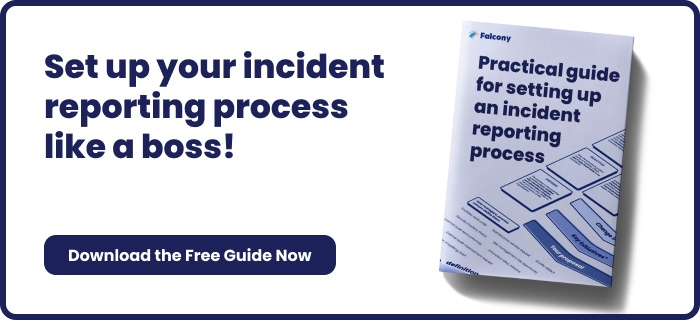Book Summary: Black Box Thinking
Human error is normal. It’s inevitable. In Matthew Syed’s book Black Box Thinking, he points this out. Not only that, but he lays out how (and why) we should look at failure as something good.
If we change our outlook on failure, as well as the ways in which we react to our own failures, we can achieve success.
Failure gives us feedback in the most critical yet crucial way. Here, we’ll summarise the 5 key things we took away from this book.
1. Admitting your mistakes is the first step towards learning from them
The biggest obstacle we have when it comes to progress is when we don’t learn from our mistakes. We also often shy away from admitting when we’ve failed.
If you don’t admit to your mistakes, you don’t lay them out on the table. And if they’re not out on the table, you can’t use them as lessons and learn from your mistakes. This hinders growth. It’s as simple as that.
2. Having a progressive attitude towards failure is key
Following on from the previous point, it’s important to have a progressive attitude towards failure. We shouldn’t let it hold us back. A progressive attitude is always a great thing to have, but even more so in this context.
If you want to progress, you need to be able to take failure in your stride. Admit it, learn from it, and most importantly use it to launch your progress further forward.
Failure isn’t something to be ashamed of. It’s something that happens to everyone and there’s value in learning from failure.
3. Redefining failure unleashes endless benefits
Progressive thinking also includes being willing to redefine things; in this case, failure. Redefining failure can release things like creativity and resilience.
Why? Because looking at something negative as something positive will almost always lead to excellent benefits. You’ll be able to move forward without any regrets. You can look at failure as a great opportunity to learn and grow.

Black Box Thinking by Mattew Syed. Available for purchase in Amazon.
4. Altering your beliefs isn’t so bad
When confronted with evidence that challenges the beliefs we hold, we often tend to try and reframe this evidence. Syed proposes that, instead, we consider altering our beliefs.
Evidence is called evidence for a reason: it’s based on fact and observations. Recognising this, as well as recognising that our beliefs are often hypotheses and not fully-fledged facts, is a great step towards success.
5. Splitting problems into small parts lends itself to understanding
The book speaks about marginal gains - but this is not to be confused with simply making small changes in the hopes that one of them will finally fix an issue.
Rather, we should split problems into small parts and study these parts. Analysing them lends itself to proper understanding. This provides you with knowledge about what will work and what won’t.
Final Thoughts
All of the above things are what lead to “Black box thinking” - a way of thinking that emphasised building your own black box. This is an environment in which you think about your decisions and actions, and use what you have learned to propel you forward.
If your organisation is looking for a tool to manage black box thinking in the ever evolving and changing world, have a look at incy.io. It enables you to better involve your staff in improvement and learning from failure, create clarity on non-conformities, prevent and decrease the amount of friction in cross-team communications, and gather actionable data while doing these.
Are you interested to hear more? Have a look at Falcony | Observe to see how we can help your organisation.
We are building the world's first operational involvement platform. Our mission is to make the process of finding, sharing, fixing and learning from issues and observations as easy as thinking about them and as rewarding as being remembered for them.
By doing this, we are making work more meaningful for all parties involved.
More information at falcony.io.

Related posts
How To Reduce The Organisational Fear Of Failure
Incident reporting in the workplace may be a source of anxiety for many people. However, this is...
A book summary of Drift into failure by Sidney Dekker.
"Drift into Failure" is a book by Sidney Dekker that examines the ways in which complex systems can...
The Secret Piece Of Organisational Change (Cross-team Communication)
It is no longer enough to have a good product or service. We live in a world characterised by ...





